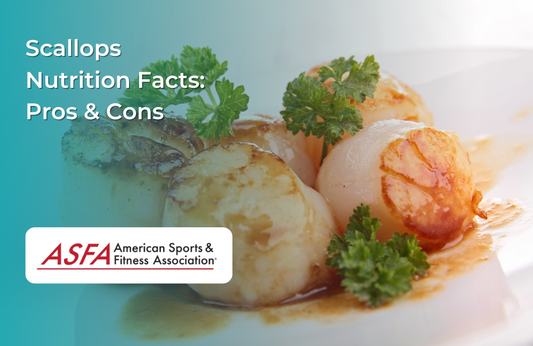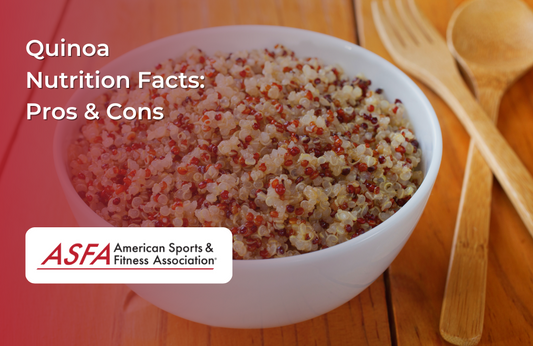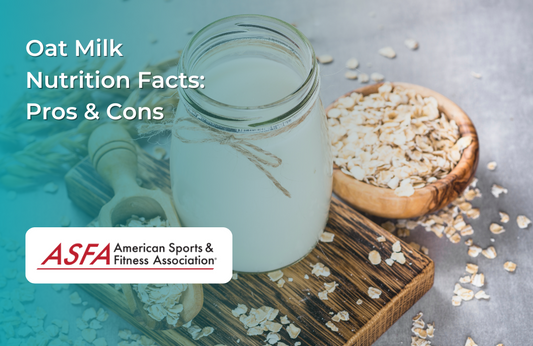Quinoa is a nutrient-dense whole grain known for its high protein content, rich fiber, and essential vitamins and minerals. It is often used as a healthier alternative to refined grains due to its impressive nutritional profile and ability to support overall health. While quinoa provides several benefits, it also has some potential drawbacks depending on individual dietary needs. Understanding its nutritional profile helps determine how it fits into a balanced diet.
Quinoa Nutrition Facts, Pros, and Cons: A Comprehensive Nutritional Profile
A one-cup serving of cooked quinoa contains approximately two hundred twenty calories, thirty-nine grams of carbohydrates, eight grams of protein, and four grams of fat. Quinoa is a good source of fiber, providing around five grams per serving, which supports digestion and gut health. It is one of the few plant-based foods considered a complete protein, meaning it contains all nine essential amino acids necessary for muscle repair and overall health. Quinoa is rich in vitamins and minerals such as magnesium, phosphorus, iron, and folate, which contribute to energy metabolism, bone health, and red blood cell production. It also contains antioxidants such as flavonoids, which help reduce inflammation and support cellular health. The nutritional value of quinoa underscores its importance as a nutrient-dense food that can significantly contribute to daily nutrient needs.
What is Quinoa?
Definition and Origin
Quinoa is often hailed as a “superfood” due to its impressive nutritional profile, which includes high levels of protein, fiber, and antioxidants. Unlike traditional grains, quinoa is classified as a pseudo-cereal, meaning it is technically a seed harvested from the Chenopodium quinoa plant, a member of the goosefoot family. This ancient crop has been cultivated for over 7,000 years in the Andean region of South America, where it was a staple food for the Incas, who referred to it as the “mother of all grains.”
Main Types and Varieties
Quinoa comes in several main types and varieties, each with its own unique characteristics. The most commonly available type is white quinoa, which has a mild flavor and fluffy texture, making it a versatile ingredient in many dishes. Red quinoa, on the other hand, offers a slightly sweeter taste and a chewier texture, making it a popular choice for salads and cold dishes. Black quinoa stands out with its earthier flavor and crunchy texture, adding a robust element to meals. Additionally, tri-color quinoa, a blend of white, red, and black quinoa, provides a colorful and flavorful mix. For those looking to maximize nutritional benefits, sprouted quinoa, made by soaking and sprouting quinoa seeds, offers enhanced digestibility and nutrient absorption.
Quinoa Nutrition Facts
Macronutrient Breakdown
A one-cup serving of cooked quinoa packs a nutritional punch with approximately 222 calories, 4 grams of fat, 39.4 grams of carbohydrates, and 8 grams of protein. This makes quinoa an excellent source of energy and a valuable addition to any diet. Its high protein content, including all nine essential amino acids, makes it a standout among plant-based foods. Additionally, quinoa is rich in dietary fiber, providing about 5 grams per cup, which supports digestive health and helps maintain a feeling of fullness.
Micronutrient Content
Quinoa is not just about macronutrients; it is also a powerhouse of essential vitamins and minerals. It is particularly rich in iron, which is crucial for oxygen transport in the blood, and magnesium, which supports muscle and nerve function. Phosphorus and potassium are also abundant in quinoa, contributing to bone health and proper cellular function. Moreover, quinoa is a good source of vitamin E, an antioxidant that helps protect cells from damage. The B vitamins, including folate, riboflavin, and thiamine, found in quinoa, play vital roles in energy metabolism and overall health. The presence of antioxidants like flavonoids and phenolic acids further enhances quinoa’s ability to combat oxidative stress and inflammation, making it a truly nutritious addition to your diet.
Health Benefits of Quinoa
The benefits of quinoa are numerous, making it an excellent plant-based protein source for vegetarians, vegans, and those looking to diversify their protein intake. Its high fiber content supports digestion, promotes gut health, and helps regulate blood sugar levels. The health benefits of quinoa include its rich nutritional profile that supports various health improvements such as better digestion, lower cholesterol, and a gluten-free option for those with dietary restrictions. Quinoa is naturally gluten-free, making it a safe option for individuals with celiac disease or gluten sensitivities. The combination of protein and fiber in quinoa helps promote satiety, making it a good choice for weight management. It is highly versatile and can be used in a variety of dishes, including salads, soups, grain bowls, and baked goods. Eating quinoa regularly can aid in maintaining a feeling of satiety, aiding weight management, and supporting glucose regulation.
Cons of Quinoa
Eating quinoa contains natural compounds called saponins, which can give it a slightly bitter taste if not rinsed before cooking. While quinoa is high in carbohydrates, it may cause blood sugar spikes if consumed in excess, especially for individuals managing diabetes or insulin resistance. Some people may experience mild digestive discomfort when first incorporating quinoa into their diet due to its fiber and natural compounds. Depending on where it is sourced, quinoa can be more expensive than other grains, making it less accessible for some individuals.
Conclusion
Quinoa is a nutrient-rich whole grain that provides protein, fiber, vitamins, and minerals while being naturally gluten-free. Its benefits for digestion, muscle growth, and overall health make it a valuable addition to a balanced diet. While it is generally well-tolerated, portion control and proper preparation help maximize its benefits while minimizing potential digestive discomfort. Incorporating quinoa into meals in a variety of ways ensures a diverse and well-rounded diet.
FAQs
Is quinoa healthier than rice?
Quinoa is higher in protein and fiber than white rice, making it a more nutrient-dense option, especially for those seeking plant-based complete proteins.
Can people with diabetes eat quinoa?
Yes, quinoa has a lower glycemic index than many refined grains and contains fiber, which helps regulate blood sugar levels when consumed in moderation. Additionally, eating quinoa regularly can support glucose regulation, making it particularly beneficial for people with diabetes.
Does quinoa need to be rinsed before cooking?
Yes, rinsing quinoa removes saponins from its edible seeds, which can cause a slightly bitter taste and may contribute to digestive discomfort in some individuals.
Is quinoa good for weight loss?
Yes, the health benefits of quinoa, including its high protein and fiber content, help promote satiety, making it a good choice for weight management when included in a balanced diet.
How can quinoa be incorporated into meals?
Quinoa can be used in salads, soups, stir-fries, grain bowls, and even baked goods as a nutritious and versatile alternative to refined grains, making it an excellent choice for a gluten free diet.





